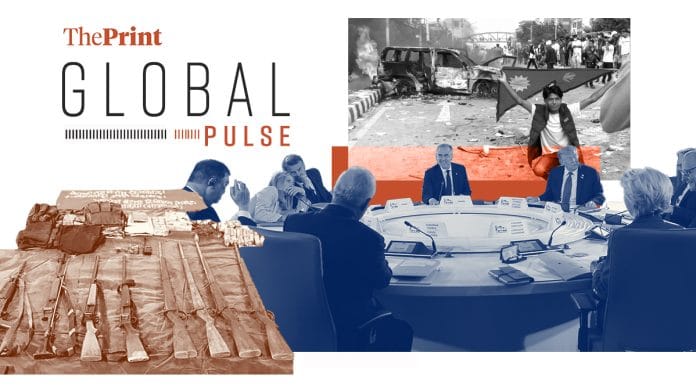New Delhi: After pressuring the European Union, the United States is now pushing G7 countries to inflict higher tariffs on India and China, reports the Financial Times. This too is ostensibly an attempt to push Russia into a corner, and punish India and China for their continued purchase of Russian crude.
“Chinese and Indian purchases of Russian oil are funding Putin’s war machine and prolonging the senseless killing of the Ukrainian people,” a US Treasury department spokesperson has been quoted as saying in the report by Andy Bounds, Henry Foy, James Politi and Ilya Gridneff.
“Earlier this week, we made it clear to our EU allies that if they are serious about ending the war in their own backyard, they need to join us and impose meaningful tariffs that will be rescinded the day the war ends.”
However, the spokesperson declined to state a figure for the tariffs “but people familiar with the situation said the US had proposed levels of between 50 and 100 per cent”.
In the Financial Times’ Europe Express newsletter, Henry Foy writes that the EU is on the verge of clinching a “long-desired trade deal with India.”
Regarding Trump’s 100 per cent tariff directive, EU officials tell the Financial Times that this is unlikely to happen as “India is a vital partner in trade and security matters.”
“Trade talks have been tortuous after they were relaunched in 2021 following years of stalled efforts. India has applied tariffs as high as 100 per cent on products including spirits and chemicals,” reads the newsletter. “It has also ruled out lowering them on many agricultural products that the EU exports, such as dairy and sugar.”
For the Washington Post, Karishma Mehrotra and Raunak Shivhare get into Bastar, reporting on a decades-old conflict between the Indian government and the members of a “tenacious guerilla army”—the Maoists.
Home Minister Amit Shah has said he is confident India will be “maoist-free” soon. But beneath the government’s clampdown is a movement that runs deep, they write. Yet, “in Bastar, the region at the heart of the conflict, villagers and activists said the insurgents have never been weaker”.
Activist Sunita Pottam, who built a non violent, grassroots movement and fought against the sexual assault and violence meted out to indigenous communities, is behind bars, the report writes.
“In June 2024, police stormed Pottam’s home, tore her clothes and ‘violently dragged’ her away, according to a letter from U.N. human rights experts to the Indian government. Her arrest was ‘aimed at silencing her criticism of alleged human rights violations committed by the state and to ensure impunity,” says the report.
Meanwhile, Maoists themselves admit that only 13 of their senior leaders are alive and that 350 of their fighters were killed last year, the report notes.
“Police say 3,000 Maoists have surrendered in recent years and that many are now a crucial part of their fighting force. They know the jungle like the back of their hand,” said Sundarraj Pattilingam, inspector general of police in Bastar. “And they know the Naxals’ modus operandi.”
BBC’s Soutik Biswas writes about how the unrest in Nepal has worried its citizens working in India and they are hurrying back home “We are returning home to our motherland,” says one man. “We are confused. People are asking us to come back.”
But the report writes the journey back home brings insecurity about wages and work.
“There’s trouble back home, so I must return. My parents are there – the situation is grave,” the report quotes Saroj Nevarbani, a migrant, as telling BBC Hindi.
(Edited by Ajeet Tiwari)
Also Read: Trump blows hot & cold on India amid White House ‘frustration’ at inability to contain Russia






